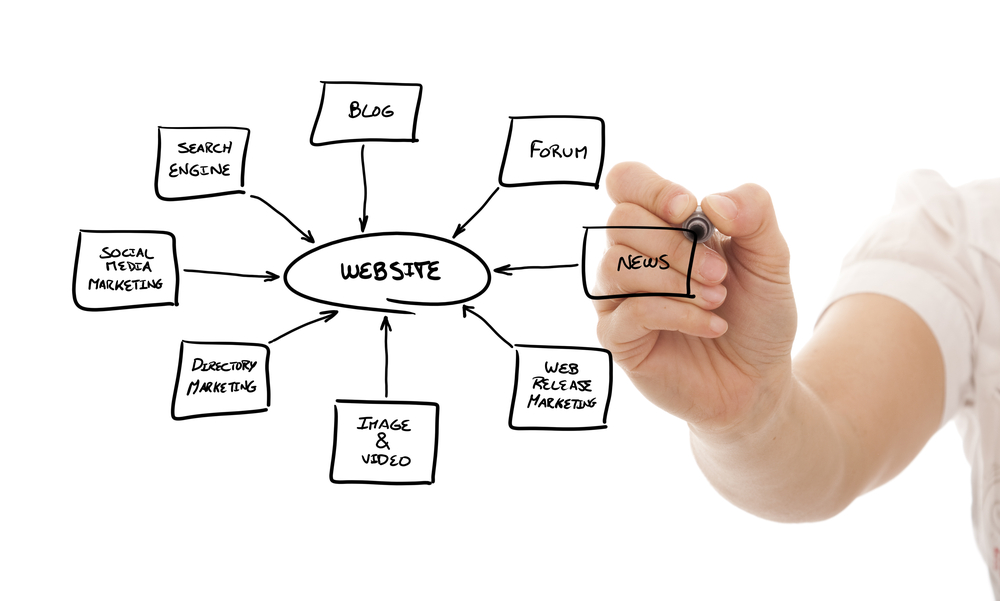A website is more than just a digital storefront—it’s a powerful engine for growth. In the evolving landscape of digital marketing, Content Marketing Websites have emerged as one of the most effective tools for driving traffic, generating leads, and increasing revenue. When strategically developed, these websites become central hubs that communicate brand value, build trust, and move prospects through the buyer’s journey.
The Role of Content in Business Growth
In today’s customer-driven market, informative and engaging content is what attracts attention. Content marketing websites serve as a content marketing platform to publish blogs, videos, case studies, white papers, and guides that are tailored to the interests and pain points of your target audience. When potential customers find valuable content that solves their problems or answers their questions, it increases their trust in your brand. This trust isn’t just a feel-good metric—it translates into real business results. Content Marketing Companies that invest in content marketing typically see better conversion rates, lower customer acquisition costs, and higher long-term engagement compared to those relying on traditional advertising alone.
Content Marketing Websites: The Central Hub
It is organized in a way that facilitates seamless navigation, promotes deeper content consumption, and encourages interaction. These websites act as the central hub for your digital content marketing strategy, integrating email marketing, SEO, social media, and paid advertising efforts. When you publish valuable content consistently, you not only attract search engine traffic but also provide assets that your sales and customer service teams can use. From lead magnets like downloadable eBooks to blog posts that answer common customer questions, everything works together to move visitors through the content marketing sales funnel.
SEO Power and Organic Traffic
One of the most significant benefits of content marketing is their ability to generate long-term organic traffic through search engine optimization (SEO). Every article or page on your site is an opportunity to rank for relevant keywords. Over time, this builds a robust digital footprint that brings in consistent, qualified traffic. Unlike paid ads that stop delivering results once the budget runs out, evergreen content keeps working for your business. And because it’s found by users actively searching for information, this traffic is more likely to convert. The cumulative effect is a scalable, sustainable marketing channel that reduces your reliance on expensive outbound tactics.
Turning Visitors into Leads
Content marketing websites are not just about attracting attention—they’re designed to convert. A high-performing site includes strategic calls-to-action (CTAs), lead capture forms, and landing pages that guide users to take the next step, whether it’s signing up for a newsletter, downloading a resource, or booking a content marketing consultation. Moreover, analytics tools integrated into the website can help you track what content is performing best and which areas of the site lead to conversions. This allows you to refine your strategy based on real data, further improving results over time.
Enhancing Brand Authority and Trust
When your website is filled with well-researched, insightful content, it positions your brand as a thought leader in your industry. Content marketing websites give your business a voice and a platform to share expert opinions, customer stories, and educational resources. This level of authority enhances trust and can be a deciding factor for buyers choosing between you and a competitor. In content marketing B2B and high-consideration B2C markets, trust is everything. If your content is the one guiding them along that path, your brand stays top-of-mind.
Real-World Results: Case in Point
Businesses across various industries have seen remarkable ROI from investing in content marketing. Whether it’s a SaaS content marketing company tripling its leads from inbound traffic or a local service business expanding its reach nationwide, the results speak for themselves. These outcomes are not by accident—they’re the result of intentional strategy, consistent execution, and a website built to deliver value.
Conclusion
In today’s digital-first world, your website is often the first—and sometimes only—chance you get to make an impression. Content Marketing Websites are not just digital brochures; they are dynamic tools that educate, convert, and retain customers. Whether you’re a content marketing startup looking to scale or an established brand aiming to stay competitive, investing in a content-rich website is one of the smartest moves you can make. As more consumers turn to online research before making purchasing decisions, the businesses that win will be those with content that informs, builds trust, and drives action. Your next customer is out there searching—make sure your content is there to meet them.


